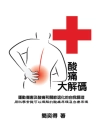The only source for reliable, evidence-based information on the relevance, safety, and effectiveness of alternative and lifestyle medicine approaches to MS treatment and the best ways to safely integrate them with conventional medicine.
In addition to conventional medicine, many people with MS also use some form of alternative medicine, and there is growing evidence and interest in the effects of lifestyle factors, such as diet and exercise, on MS. Yet, until now, it has been difficult to obtain unbiased information about the MS-relevant aspects of these nonmedication approaches. Optimal Health with Multiple Sclerosis provides the accurate and unbiased information people with MS, their friends and family, health care professionals, and educators need to make responsible decisions and achieve the very best outcome.
- Find other options that may provide symptomatic relief when conventional therapies are limited
- Learn about potentially dangerous interactions between alternative therapies and medical treatments used in the management of MS
- Identify alternative and lifestyle therapies that are effective, low risk, and inexpensive
- Recognize ineffective, dangerous, or costly alternative therapies
Tabla de materias
Contents
Foreword by Rosalind C. Kalb, Ph D
Preface
How to Use This Book
Acknowledgments
Part 1: Introduction
Alternative Medicine and Lifestyle Medicine
Placebos and Nocebos
Important Precautions About Complementary and Alternative Medicine, Lifestyle Medicine, and Multiple Sclerosis
Part 2: Optimal Health With Multiple Sclerosis: A Seven-Step Guide to Integrating Lifestyle, Alternative, and Conventional Medicine
Introduction
General Concepts
Helpful Strategies
Step 1: Disease-Modifying Medications
Step 2: Diet, Dietary Supplements, and Weight Management
Step 3: Tobacco and Alcohol Use
Step 4: Physical Activity
Step 5: Personal and Social Well-Being
Step 6: Prevention and Management of Other Medical Conditions
Step 7: Symptom Management
• Lifestyle and Unconventional Therapies That May Improve Many Different Symptoms
• Symptoms That May Be Relieved With Specific Lifestyle and Unconventional Therapies
Anxiety and Stress
Bladder Problems
Bowel Problems
Colds and Flu—Prevention or Decreasing Duration
Coordination Problems
Depression
Fatigue
Pain
Sexual Problems
Sleep Problems
Spasticity (Muscle Stiffness)
Thinking (Cognitive) Problems
Walking Problems
Weakness
Part 3: Types of Lifestyle and Unconventional Medicine
Acupuncture and Traditional Chinese Medicine
Alcohol
Aromatherapy
Aspartame
Ayurveda
Bee Venom Therapy and Other Forms of Apitherapy
Biofeedback
Candida Treatment
Chelation Therapy
Chiropractic Medicine
Chronic Cerebrospinal Venous Insufficiency
Colon Therapy, Detoxification, and Enemas
Cooling Therapy
Craniosacral Therapy
Dental Amalgam Removal
Enzyme Therapy
Exercise
Fats: Fish Oil and Polyunsaturated Fatty Acids
Feldenkrais
Fiber
Gluten Sensitivity and Celiac Disease
Guided Imagery
Herbs
Hippotherapy and Therapeutic Horseback Riding
Homeopathy
Hyperbaric Oxygen
Hypnosis
Low-Dose Naltrexone
Magnets and Electromagnetic Therapy
Marijuana
Massage
Meditation
Mindfulness
Music Therapy
Obesity and Weight Management
Paleolithic Diets
Pets
The Pilates Method and Physical Mind Method
Prayer and Spirituality
Probiotics and the Gut Microbiome
Prokarin
Reflexology
Salt
Tai Chi and Qigong
Therapeutic Touch
Tobacco and Smoking Cessation
Toxins
Tragerwork
Vitamins, Minerals, and Other Nonherbal Supplements
Yoga
Appendix 1: Ratings of Lifestyle and Unconventional Therapies
Appendix 2: Dietary Supplements and Herbs That Have MS-Relevant Side Effects or Drug Interactions
References
Index
Sobre el autor
Allen C. Bowling, MD, Ph D, is Medical Director of the Rocky Mountain MS Center. He is also the Director of the Complementary and Alternative Medicine Program based at the center and a Clinical Associate Professor of Neurology at the University of Colorado Health Sciences Center.












